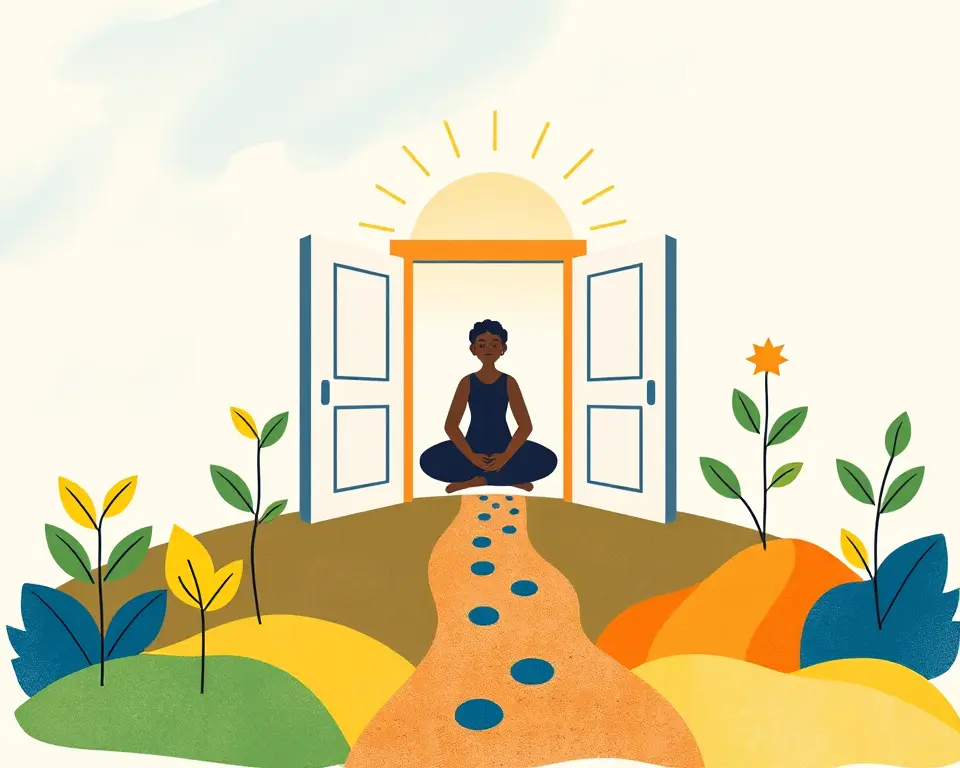In today’s fast-paced world, prioritizing mental health is more important than ever. However, the cost of therapy and mental health services can be a significant barrier for many. The good news is that there are several effective and free strategies you can implement to support your mental well-being and get back on track.
Why Mental Health Matters
Mental health is a critical component of overall health and well-being, enabling individuals to realize their full potential and participate fully in all aspects of life. Taking care of your mental health can help you manage stress, lower your risk of illness, and increase your energy levels. Prioritizing your mental and emotional well-being allows you to show up better for others, creating a win-win situation.
1. Tap Into the Power of Human Connection
Why Connection Matters
Connecting with others can provide a sense of meaning and purpose, decreasing feelings of loneliness. Sharing your feelings and experiences with others is essential for mental well-being. Studies show that social connection can improve mental health.
How to Connect for Free
- Support Groups: Join free support groups, either in person or online. These groups provide a safe space to share experiences and connect with others facing similar challenges. NAMI (National Alliance on Mental Illness) offers free, nationwide peer-support services. LiveWell Foundation offers free peer support groups for depression. HeyPeers provides a platform for various organizations to offer support groups covering a wide range of topics to address diverse mental health and well-being needs. ADAA (Anxiety and Depression Association of America) has created free online peer-to-peer communities for people suffering from mental health disorders to find support, share their stories, and connect with others who have had similar experiences.
- Connect with Friends and Family: Reach out to friends or family members who can provide emotional support and practical help. Schedule time to connect with people you care about, whether it’s on the phone or in person. Strengthening relationships can combat loneliness and provide a sense of belonging.
- Online Communities: Participate in online mental health support communities. Mind runs Side by Side, an online mental health support community open to anyone over 18. Social media can be a budget-friendly tool to aid mental health if used with consideration.
2. Embrace Mindfulness and Meditation
The Benefits of Mindfulness
Mindfulness uses techniques like meditation and breathwork to improve your mental health. It can help you manage symptoms of anxiety and other mental health disorders by helping you understand and cope with what you’re feeling. Studies show that meditation can reduce stress, alleviate symptoms of depression or anxiety, and improve sleep.
Free Ways to Practice Mindfulness
- Meditation Apps: Utilize free or low-cost meditation apps. Many apps offer free trials or subscriptions. Smiling Mind is a free mindfulness and meditation app. Calm is another app that can help you improve your well-being, boost your mood, manage stress and anxiety, and get better sleep.
- Deep Breathing Exercises: Practice deep breathing exercises to relax and lower stress levels.
- Mindful Activities: Incorporate mindfulness into everyday activities. Pay attention to the present moment and engage your senses.
3. Harness the Healing Power of Nature
Why Nature Matters
Spending time in nature can make you feel calmer and improve your mental health. Sunlight boosts serotonin in the brain, which can improve your mood. Being near water has cognitive and emotional benefits.
Free Ways to Connect with Nature
- Go for a Walk: Take a walk in a park, forest, or along a beach.
- Spend Time Outdoors: Sit outside, smell flowers, or simply observe your surroundings.
- Garden Walk: Explore your neighborhood and appreciate the plants and flowers.
- Watch the sunset.
4. Practice Self-Care and Prioritize Well-being
The Importance of Self-Care
Self-care means taking the time to do things that help you live well and improve both your physical and mental health. It can help you manage stress, lower your risk of illness, and increase your energy. Self-care is not selfish; it’s essential for maintaining your well-being.
Free Self-Care Strategies
- Journaling: Write down your thoughts and feelings to identify negative patterns and promote self-reflection.
- Engage in hobbies: Do something you enjoy, find a new hobby, or revive an old one.
- Get Creative: Engage in art, music, or other creative activities to express your emotions and promote relaxation.
- Exercise: Engage in regular physical activity to relieve anxiety, improve your mood, and boost your confidence.
- Prioritize Sleep: Aim for 8 hours of sleep per night to improve your mental health. Create a calming bedtime routine.
- Eat Healthy: Maintain a balanced diet and stay hydrated to improve your energy and focus.
- Practice Gratitude: Remind yourself daily of things you are grateful for.
- Set Goals and Priorities: Decide what needs to be done now and what can wait. Learn to say “no” to new tasks if you’re feeling overwhelmed.
Additional Resources
- Mental Health Apps: Mental health apps offer resources and tools to support your mental wellness journey. Moodfit and Sanvello are examples of apps with educational resources and coping strategies.
- Online Therapy: Some online therapy platforms offer affordable rates or free options. 7 Cups provides free online therapy and emotional support.
- Community Centers: Check local community centers for low-cost or free mental health services.
- Helplines and Crisis Lines: If you’re struggling or in crisis, confidential, free help is available 24/7. Call or text 988 or chat at 988lifeline.org. Text HOME to 741741 to connect with a crisis counselor. SAMHSA’s National Helpline: Call 1-800-662-HELP (4357).
Taking care of your mental health doesn’t have to break the bank. By incorporating these free strategies into your daily life, you can prioritize your well-being and unlock your inner peace.










